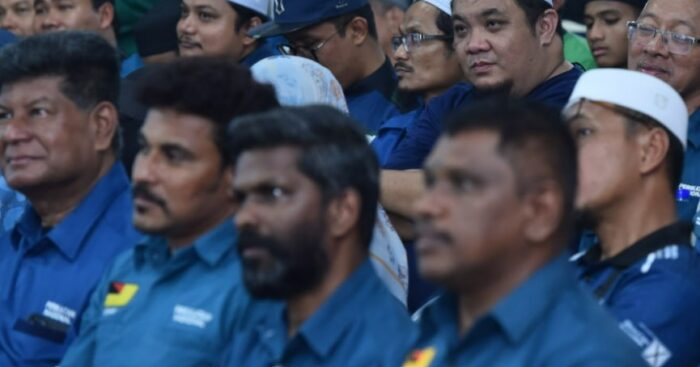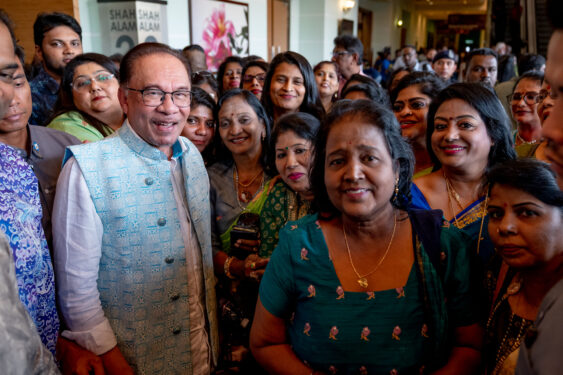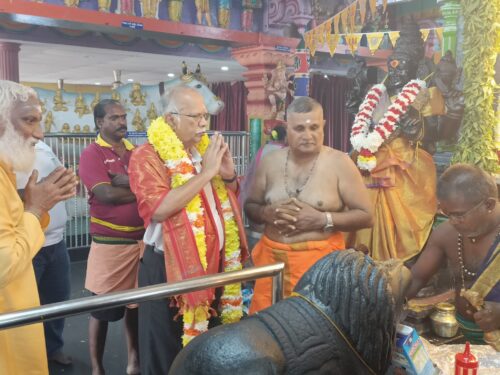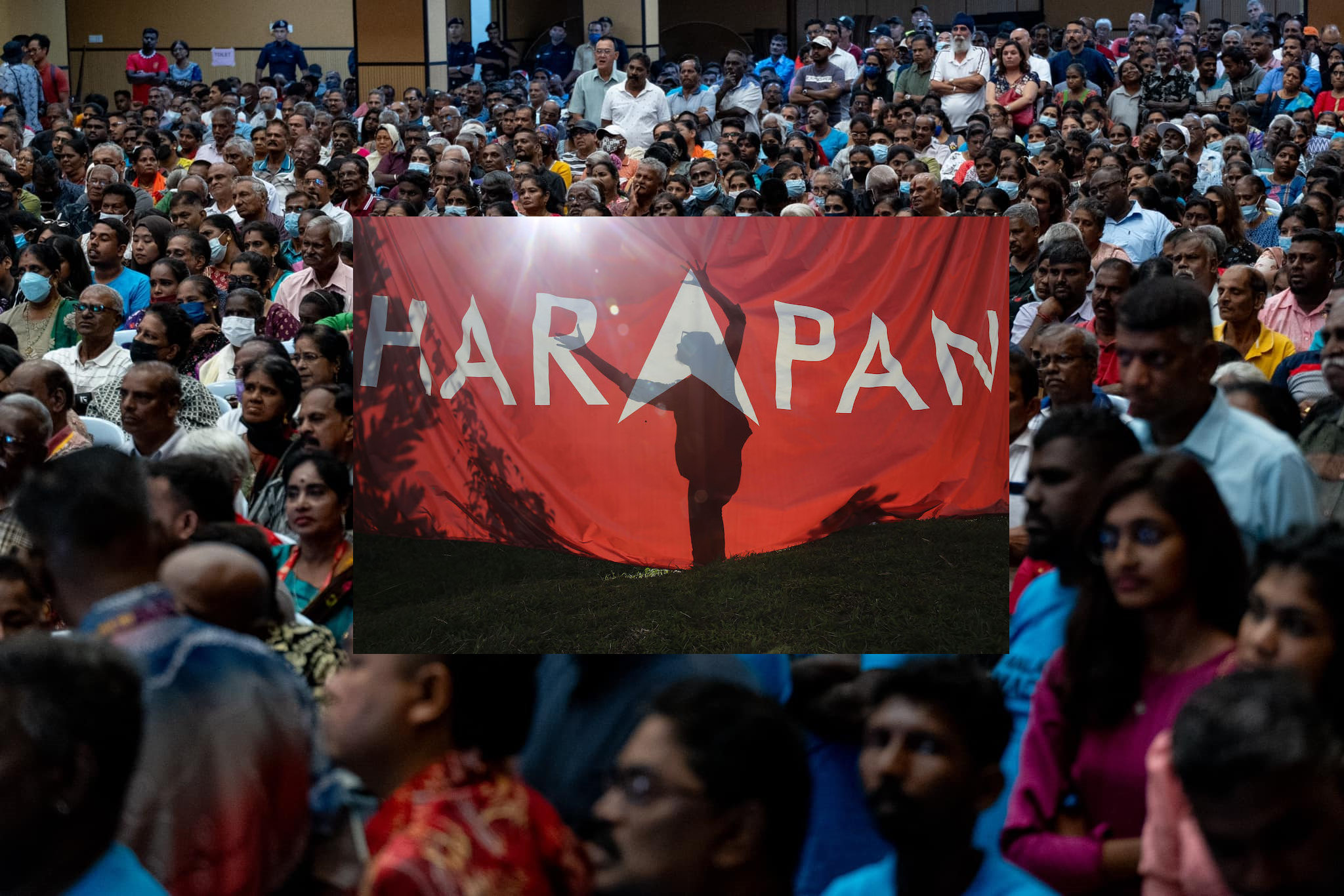THRE has been a spate of articles of late in the media about the feasibility of forming new Indian political parties in the country.
The reaction from the public is pretty much reflection of the class divisions in the Indian community.
The upper socio-economic category think that it is an exercise in futility given the fact that there are not only too many Indian political parties – mostly inactive – around but because further fissures will be introduced in the already divisive and numerically small community.
Alternatively, individuals belonging to a particular category think that Indians in general should support the multi-racial coalition of Pakatan Harapan-Barisan Nasional (PH-BN) despite the inherent problems in the coalition.
The argument urging Indians to swim or sink with the unity government seems to be premised on grounds that the community has no other option but to go along with the PH-BN.
The opposition is that Perikatan Nasional (PN) provides no alternative to Indians due to its overemphasis on race and religion. Strangely, independent of this kind of prognosis, there was sizeable shift of Indian voters to PN in the last state elections.
Apparently, the Indian working class was not bothered too much about PN’s affinity with race and religion. The view of the upper echelons of the Indian community might not be congruent of the sentiments and thinking of the Indian working class.

Indians getting sidelined
Recent events indicate that the rank-and-file Indians who are vctims of racial and religious discrimination are more prone to change than those sheltered in the higher socio-economic category.
In more sense, why the need for new Indian political parties when the DAP and PKR have provided a fair measure of political representation and what is more the opportunity for Indian candidates to become elected representatives and to hold ministerial positions.
Multi-racial political parties such as DAP and PKR have Indian membership to the effect of 20% and 40%. Compared to DAP, PKR has significant Indian representation.
To what extent these political parties provide a fair share of Indian representation in terms of elected posts can be questioned. Despite boasting of a significant Indian representation mostly from the working class, PKR provides very little recognition for Indians.
Since the party is competing with UMNO, Bersatu and PAS for Malay political support, there is little or hardly any concern for the welfare and well-being of the Indian community.
Having a presence of few Indian members in leadership position is hardly a way of recognising the legitimate concerns of the Indian community.
Unfortunately, the PKR president who is also the present Prime Minister Datuk Seri Anwar Ibrahim has almost completely forgotten the Indian community by engaging in appeasement politics in favour of the Malays.
I am glad that he has stopped using phrases such as Chinese, Indians, Malays, Iban, Dayaks and others are his children.

PH losing Indian votes
His recent actions in favour of the Malays have exposed his hypocritical multi-racialism. Similarly, DAP has come a long way from its humble beginnings.
It is no more the party that stood to fight for the rights of Malaysians particularly the non-Malays. The gravitation of the party towards power and position has detrimental effects on the representation of the Indian community.
The Indian leaders in the party lack an independent voice in articulating the serious political, economic and social concerns of Indians. Indian disenchantment with PH in general and DAP and PKR in particular has already begun with last state elections.
The last state elections and the subsequent by-elections in Johore were indicative of Indian disenchantment with PH-BN coalition. PH particularly lost an average of 20% Indian support in the state elections particularly in states like Penang and Selangor, states with high Indian voters.
The decline was probably much more dramatic in the Sept 9 Johor by-elections. The fundamental neglect and disrespect of the Indian community continues under the unity government.
I seriously doubt that Anwar can alter the increasing unhappiness of the Indian community towards the unity government or Madani government. The non-necessity of new Indian political parties cannot be rationalised from the fragmentary nature of the community.

Fundamental right
One popular columnist was careless enough to say that Indians in the country are heterogeneous. This heterogeneity might not be conducive for the formation of new Indian political parties.
My response is simple: if 85% of Indians are of Tamil origins by ethnicity and Hindus by religion and 75% are members of the working class, how then can Indians be termed as heterogeneous?
The question is how much one wants to read into the Indian community. Whether there is need for new Indian political parties cannot be determined a priori on the basis of the community’s numerical weakness or it being heterogeneous or there are too many parties already available.
Such kind of a priori arguments are not only ahistorical but letting the past events to determine the future. A priori arguments do not address the present problems of Indians – ethnic discrimination, marginalisation and exploitation (from a class angle).
It is the fundamental right of Indians to have the constitutional and legal right to have the freedom of association.
As they have the right to form new political parties to overcome their political, social and economic stagnation, they have the right to succeed or failure in their endeavours.
As long as men and women are not satisfied to their conditions of their existence, nothing can stop them from surging ahead with new political and social formations to advance their cause however difficult and hazardous they may be. – Nov 1, 2023
Former DAP stalwart and ex-deputy chief minister II of Penang, Prof Ramasamy Palanisamy was also the former Perai state assemblyman.
The views expressed are solely of the author and do not necessarily reflect those of Focus Malaysia.









